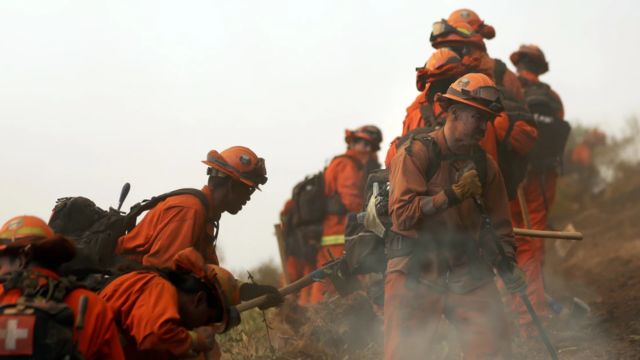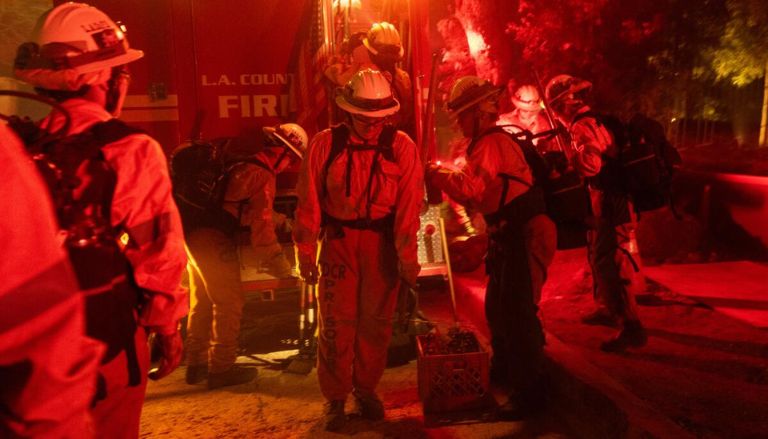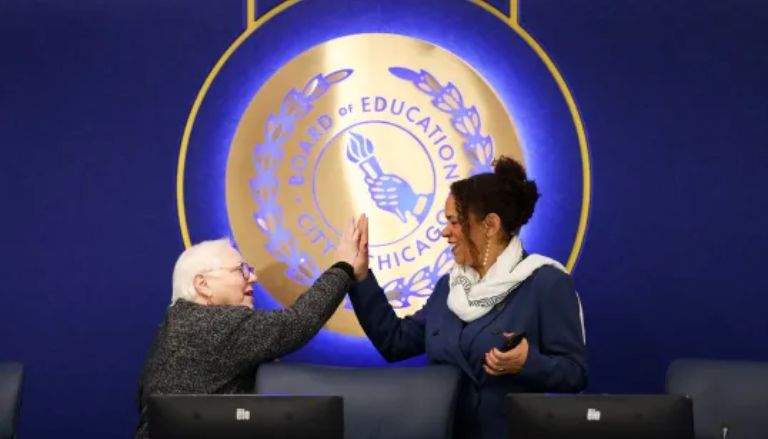Since hundreds of prisoners have been sent to fight the deadly wildfires in the Greater Los Angeles area, the state’s 100-year-old prisoner firefighter program is getting more negative reviews.
As of Thursday, 783 firefighters who were in jail as part of the California Department of Corrections and Rehabilitation Fire Camp Program were working nonstop to help check the spread of the huge fires.
This is one of at least a dozen states that run these fire camps and send prisoners to fight fires. California voters turned down Proposition 6 on the ballot last year. It was an effort to ban forced labor in prisons and jails, which includes using prisoners to fight wildfires when there aren’t enough trained professionals to do so. Even though Democratic leaders, campaign groups, and labor unions all backed the proposal, it failed.
Because the conditions of L.A.’s fires are so dangerous, people in California have criticized the CDCR’s fire program for not paying criminals who put themselves in danger.
A lot of people on “fire fighting crews” are in jail, and some of them “don’t even have access to fire fighting jobs after release,” someone wrote on X.
Another person said that firefighters who are in jail “are trained and given the choice, but are paid a pittance” and are likely to get hurt while working.
The CDCR says that prisoners can earn up to $10.24 a day through the service and can make more during active emergencies.
CDOC says that inmates can only join the fire program if they are physically and mentally healthy, have less than eight years left on their sentence, and have not been convicted of crimes like sexual violence or arson. People who work in the program can get time off their term for every day they work on a fire crew, and for some prison workers, their records can be erased. Some people have said that the program takes advantage of firemen who are in jail by making them choose between risking their lives for lighter sentences.
In a statement, the CDCR confirmed the number of firemen who are in jail and said that the workers “are proud to be embedded with CAL FIRE personnel to protect lives, property, and natural resources in Southern California.”
Authorities say that at least 24 people have died in the wildfires and that about 180,000 people have had to leave their homes. The fires that have burned through 40,000 acres in the Greater Los Angeles area and destroyed more than 12,300 buildings and whole towns were made worse by strong winds and dry conditions.
In 1915, when the program started, the state would often call on people who were in jail to fill in for staffing gaps.
Lori Wilson, the California Assembly member who pushed for Proposition 6, said she has talked to people in jail who say many of them love their jobs as firemen but wish they were paid more.
Wilson told NBC News that they find it very satisfying and helpful. “That’s something they’re very proud of.” We are fighting to get more money and to be paid properly. Not only in getting paid enough, but also in being able to use that service to find more work after they get out of jail.
“That’s not balanced, and that needs to be fixed,” she said.
A study from the American Civil Liberties Union and the Global Human Rights Clinic at the University of Chicago in 2022 found that prisoners made more than $2 billion worth of goods and commodities every year, even though they didn’t get paid much or anything at all.
“Being in a position of extreme oppression and exploitation is like having the chance to be outside instead of being locked up in a concrete cage with iron bars.” “That will do,” said George Galvis, co-founder and executive director of Communities United for Restorative Youth Justice, a group that works to reduce the number of young people who are jailed and arrested.
“You could say it’s a voluntary program, but when you’re not given many options, there isn’t much of a choice.” “It takes advantage of them,” Galvis said.
In a 2021 essay for The Washington Post, Matthew Hahn, who had been in jail for nine years, said that the work at the fire camps was dangerous, but it was “better than being in prison.” He said that some inmates often wish they could join a fire program.
“The conditions in California prisons are so bad that putting out wildfires makes sense.” “I think it’s also the safest choice,” he wrote.
Hasan Piker, a well-known leftist streamer with a big following on social media as a political creator, posted a video on Sunday in which he talks with firemen who are in jail in California. The online discussion about the fire programs got even stronger after he posted his film.
One man told Piker, “We’re the strength of the operation.” “We go out there and work hard.” “We get the short end of the stick.”

Another man, who called himself “Kimbo,” said he was from Georgetown, California, and was with the Growlersburg Conservation Camp. He said that he makes around $5 a day, or $180 a month on average and that he often works 24-hour shifts.
He said that he and his team use hand tools and that they are “the foot soldiers.” “We’re cutting down brush with chainsaws,” he said.
“It takes hours and hours.” The bulldozers can’t reach some places. “We work in tight, very steep places where a bulldozer would fall if it tried to go up there,” he said, adding that the workers do hard physical work for very little pay. “Be careful. Sometimes I have to avoid rocks.
Just like Hahn, Kimbo said that the work might be dangerous, but it’s better than what could have been done. He said, “It’s way better than being in jail.” “I saw guys get stabbed, jumped, and beat up in the prison yard.” The police are awful to us. But this place treats us better. They talk to us like real people. We got a job. We don’t get paid enough, but we have a job.
When asked about the conditions of the firefighters who were being held at the camp, camp officials did not reply right away.
The CDCR says that once they get out of jail, they can apply to work for Cal Fire, which stands for the California Department of Forestry and Fire Protection. Wilson said, “But then they have trouble with background checks and other things like that.” “They still can’t fully use that because of a lot of things standing in their way.”







Leave a Comment